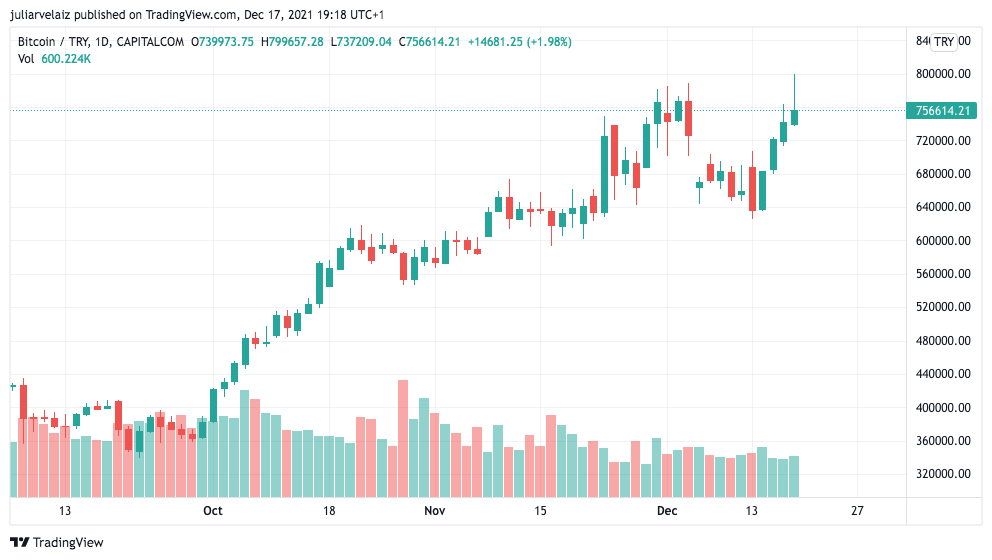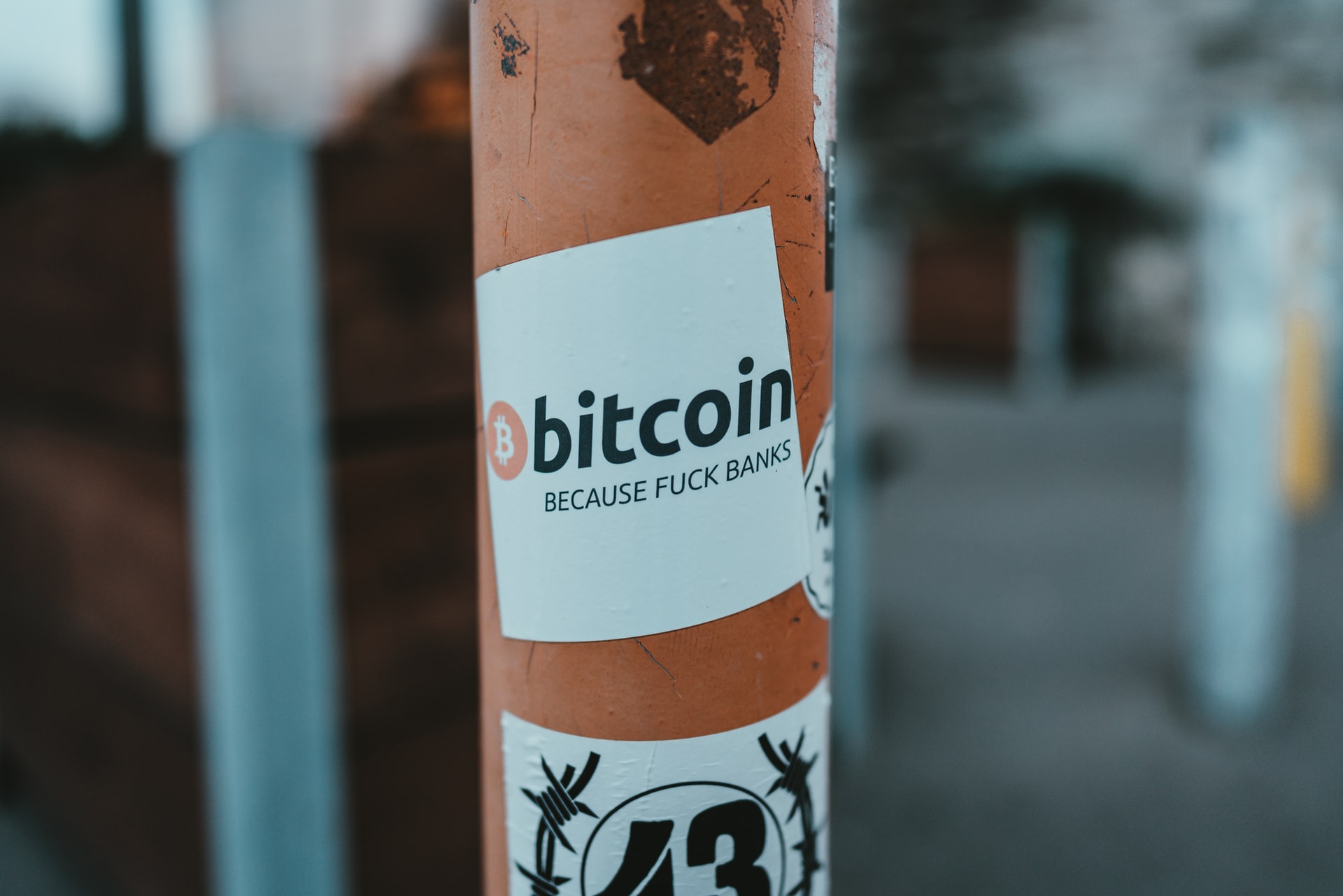Bitcoin looks like an attractive store of value as Turkey’s economy sees a huge downfall. The Turkish lira crashed 8% on Friday –55% in the year– with a new all-time low of 17.0705 to the dollar. The central bank has taken a smothering easing policy approach to address the “unhealthy” prices that keep soaring in the country. Their direct intervention slashing interest rates triggered the lira’s new low.
Reportedly, The head of the Istanbul Chamber of Industry, Erdal Bahcivan, as well as many economists, are “astonished” by the reckless central bank slashing its key rate by 100 basis points to 14%, pushing through 500 basis points of cuts since September.
“We are astonished to watch the central bank releasing its precious foreign exchange resources to the market today after it cut rates yesterday,” tweeted Erdal Bahcivan.
Inflation soared above 21% and is expected to reach 30% in 2022. The lira has dived below half of its value this year and the Turkish people are seeing their savings and wages fall into a death spiral. The currency is believed to be “beyond the point of no return”, said Patrick Curran at Tellimer.
This is the bank’s fifth direct intervention in the market this month. Its criticized policies follow President Recep Tayyip Erdogan’s pressure, who believes lowering rates will grow the Turkish economy, even though economists have urged the government to raise them. –Heads of government are not usually in charge of monetary policies.
Companies are worried about the negative impact. Rifat Hisarciklioglu, head of Turkey’s Union of Chambers and Commodity Exchanges, calls for “urgent measures”.
Consumer’s eyes are on the possibilities that Bitcoin and decentralization have to offer when the economy is at the neck of the government’s chokehold and mismanagement.
Earlier in the year, Turkey banned all cryptocurrency payments (investments are still legal), more unorthodox plans and policies.
As their own lira free falls, the bank cited the cryptocurrency market’s volatility as one of the reasons for the ban. What banks don’t say publicly is that Bitcoin can become a headache for concealing their –harmful– monetary policies, it opposes control.
Related Reading | President Of Turkey Announces War Against Cryptocurrencies
Bitcoin has lost about 23% of its value over the month as the markets face fear from the economic impact of the Covid’s new variant and the U.S Federal Reserve’s (FED) tapering of bond purchases, but part of BTC’s attractiveness is that it has always bounced back, and many fiat currencies like the Lira won’t.
Bitcoin is a much better store of value, a shield almost, and opposed centralized models set to fail the people.
Time To Choose Bitcoin?
Turkish citizens have shown a large adoption of Bitcoin with one of the highest exposures to cryptocurrencies in the world during 2020. They continue to turn to BTC as a way to face the crisis and protect from the reckless government.

A homogenous speech is shown worldwide from central banks banning cryptocurrency activities or flirting with a ban, but we keep seeing crypto adoption raise over FUD as several banks’ measures hurt consumers.
Michael Saylor, CEO of MicroStrategy, commented about the Turkish lira crash on Twitter: “What follows is a parade of horribles – capital controls, debt default, wage & price controls, & currency reset. By the time you realize you need Bitcoin is may be too late.”
Fiat money is a legalized monopoly: it doesn’t like competition, even though the competition is beneficial to consumers. The central banks protect these monopolies, which means that consumers –the ones who can suffer from their policies– are not the top priority. When cryptocurrency activities get banned, we can see how governments and central banks fear the free market.
Bitcoin: trustless, transparent, and decentralized. None of the things a government’s monopoly can offer. What they can do is “exploit and defraud”, Nobel Laureate economist Friedrich Hayek would say.
In Satoshi Nakamoto’s words:
The root problem with conventional currency is all the trust that’s required to make it work. The central bank must be trusted not to debase the currency, but the history of fiat currencies is full of breaches of that trust.
Related Reading | Can Bitcoin Fix What Top Economists Say Central Banks Cannot Solve?









